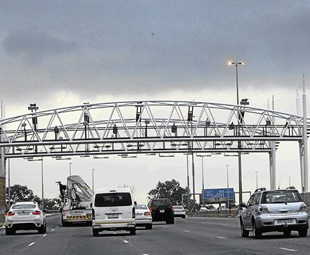Fuel levy not entirely ignored for future GFIPs

Despite enormous unpopularity among the Gauteng public and claimed “inefficiencies”, the e-toll system is likely to be retained as the main means of funding for the Gauteng Freeway Improvement Project (GFIP).
However, making use of the fuel levy as funding for future GFIP projects will not be ignored, according to Justice Project South Africa (JPSA).
JPSA has noted the contents of the summary of recommendations made by the Advisory Panel, appointed by the Gauteng Premier, David Makhura, on the Socio-economic Impact of the Gauteng Freeway Improvement Project and e-tolls, as published on the Gauteng provincial government website.
The panel recommends that funding for phase one of the GFIP should be provincially sourced, even though it advises against the introduction of a “ring fenced” provincial fuel levy.
According to JPSA, this can only mean that it proposes that funding of the current GFIP should largely continue to be sought from e-tolling, despite a proposed reduced monthly cap on e-toll fees and a “ring-fenced” increase in motor vehicle licensing fees.
JPSA states its belief that despite the proposed attempts to introduce a reduced e-toll cap to try to lead to a buy-in by motorists on e-tolling, it will have little effect on the current negative feelings that citizens of Gauteng have towards e-tolling.
The panel’s report notes the economic impact e-tolling will have on poor households and the growing middle class, especially those who travel long distances to work.
Other recommendations made by the panel include:
• Reducing vehicle travel through an integrated transport system that focuses on rail as a backbone;
• Encouraging sustainable transport systems such as all forms of public transport and alternative-fuel vehicles;
• Enabling migration of some freight from vehicles to rail, resulting in ease of congestion and reduction of damage to highways;
• Complete exemption of e-toll fees for low-income vehicle owners based on presentation of “reasonable evidence”;
• Determining a flat rate per gantry and eliminating all “alternative tariffs”.
Published by
Focus on Transport
focusmagsa




